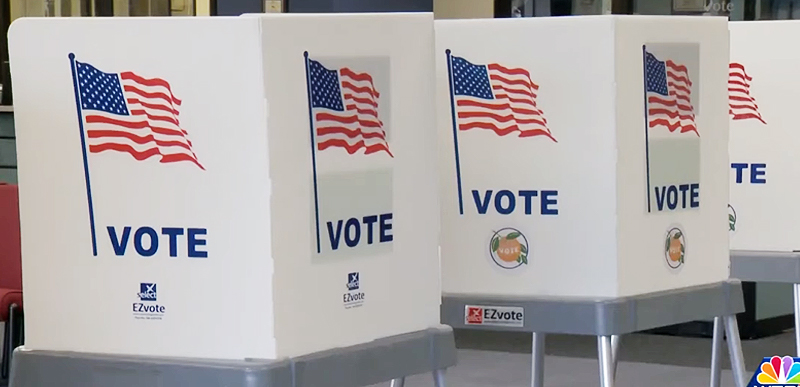Last night Judge Patricia McCullough, the same judge who issued an injunction earlier this week blocking the finalization of the certification of the election in Pennsylvania, upheld her injunction and suggested that the plaintiffs were likely to prevail:
LI – A Pennsylvania state court Judge has issued a preliminary injunction preventing Pennsylvania from taking any further steps to perfect its certification of the election, including but not limited to appointment of electors and transmission of necessary paperwork to the Electoral College, pending further court hearings and rulings. The ruling upholds an injunction from earlier in the week, and is significant because of the findings made in the Opinion released tonight.
The case has been somewhat under the radar, because it doesn’t involve claims of fraud. It appears to be a pretty straight legal argument. This is not the federal court case that has received a lot of press attention and in which the Third Circuit Court of Appeals denied relief.
The issue in this case is whether legislative expansion of absentee balloting to broad mail-in balloting violated the Pennsylvania Constitution. It’s not clear what the relief would be; the petitioners seek to preclude the Secretary of State from transmitting the certification or otherwise perfecting the electoral college selections.
Earlier in the week, Judge Patricia McCullough issued a temporary halt to the certification process, and that now is on appeal to the PA Supreme Court. The Judge issued this Opinion to extend that halt pending further hearings, and to set forth the basis for the injunction, which could be relevant to the appeal.
As mentioned above, the original lawsuit is over the legislature passing a law (ACT 77) in 2019 to expand absentee balloting beyond what the Pennsylvania Constitution states. It only allows for in-person voting on election day and absentee ballot voting based on certain qualifications.
The judge explained why this argument is a viable claim that’s likely to succeed on the merits:
Petitioners appear to have established a likelihood to succeed on the merits because Petitioners have asserted the Constitution does not provide a mechanism for the legislature to allow for expansion of absentee voting without a constitutional amendment. Petitioners appear to have a viable claim that the mail-in ballot procedures set forth in Act 77 contravene Pa. Const. Article VII Section 14 as the plain language of that constitutional provision is at odds with the mail-in provisions of Act 77. Since this presents an issue of law which has already been thoroughly briefed by the parties, this Court can state that Petitioners have a likelihood of success on the merits of its Pennsylvania Constitutional claim.
The judge also warned that the remedy sought by the plaintiffs would disenfranchise millions of voters:
That being said, this Court is mindful that one of the alternative reliefs noted by Petitioners would cause the disenfranchisement of the nearly seven million Pennsylvanians who voted in the 2020 General Election. Specifically, Respondents claim that a temporary stay would disenfranchise voters as the legislature would appoint the electors to the Election College. However, as noted, the legislature is not authorized to appoint the electors to the Electoral College until December 8, the “Federal Safe Harbor” date for certifying results for presidential electors. The Court agrees it would be untenable for the legislature to appoint the electors where an election has already occurred, if the majority of voters who did not vote by mail entered their votes in accord with a constitutionally recognized method, as such action would result in the disenfranchisement of every voter in the Commonwealth who voted in this election – not only those whose ballots are being challenged due to the constitutionality of Act 77. However, this is not the only equitable remedy available in a matter which hinges upon upholding a most basic constitutional right of the people to a fair and free election. Hence, Respondents have not established that greater harm will result in providing emergency relief, than the harm suffered by the public due to the results of a purportedly unconstitutional election.
As William Jacobson notes, this ruling isn’t the final ruling on the merits, but simply stops the certification process to allow for an expedited hearing on the merits. And it more than likely won’t survive an appeal the very activist Pennsylvania Supreme Court, which is already in progress via the AG. But the last stop is the Supreme Court and there’s a good chance it could succeed there now that Roberts has been neutralized. The biggest question will be the remedy for such a ruling should the law be deemed unconstitutional.
UPDATE: Jacobson addressed the ‘automatic stay’ issue brought up in the comments. Here’s what he said:
(added) Ed Morrissey points out that an automatic stay pending appeal may apply to the prior order. However, it’s not clear to me whether and how such an automatic stay would apply to this new order. As of this writing, no decisions from the PA Supreme Court have been issued, and no new filings have been made regarding this new order.
There appears to be some ambiguity regarding this. We’ll bring you more when we have it.

